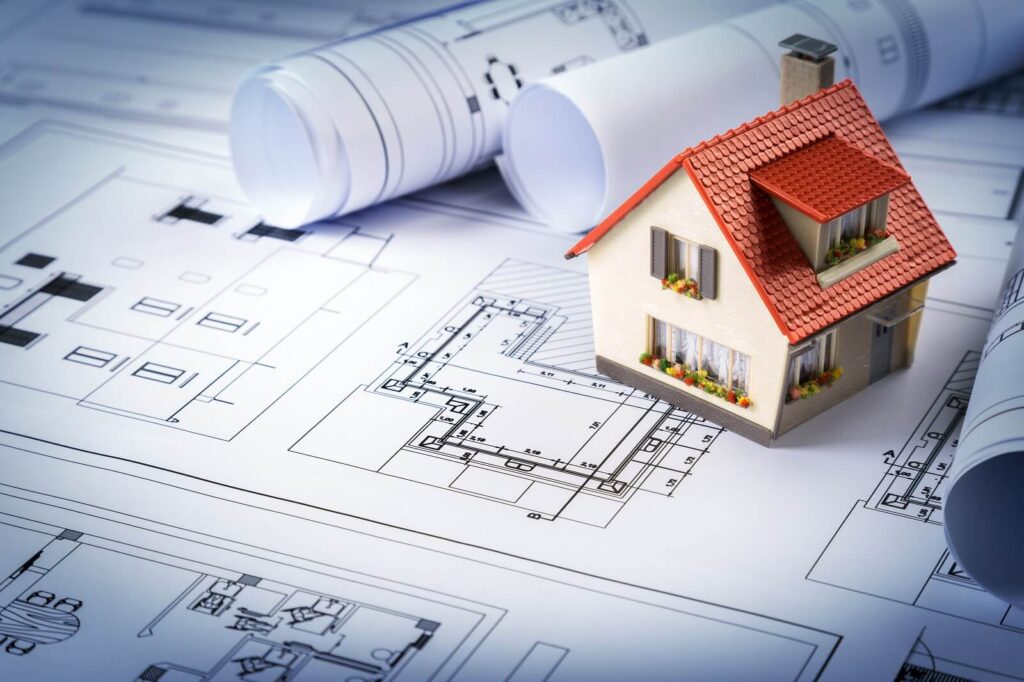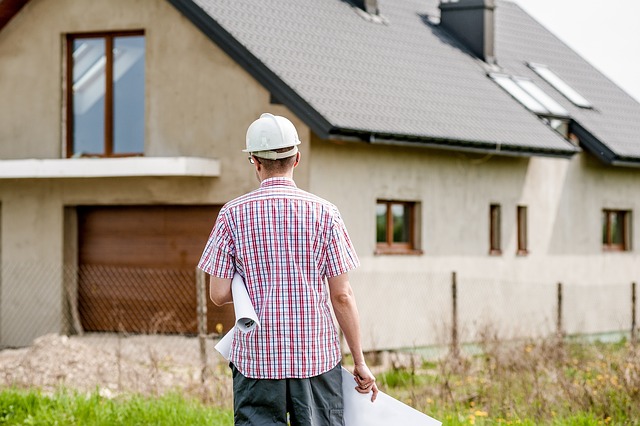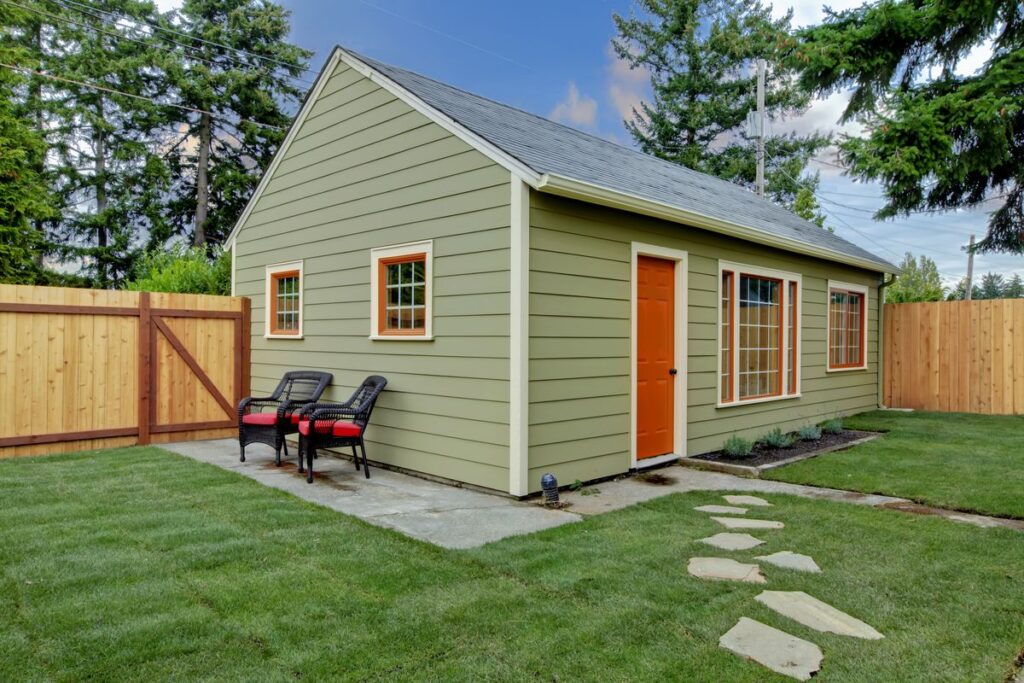New to the world of real estate? Understanding the basics of new construction, home builders, and floor plans is crucial before making that big purchase. Whether it’s your first home or an investment property, knowing the ins and outs of a house will save you from potential pitfalls down the road. In this comprehensive guide, we’ll delve into everything you need to know about new construction, from navigating building codes and permits to grasping the nuances of working with builders and contractors.
Understanding the Home Building Process
Different Stages of Home Construction
Home construction involves several stages, starting with preparation and ending with the final touches. The process typically begins with site preparation, where the land is cleared and leveled to create a suitable foundation for construction. Next comes laying the foundation, followed by framing, roofing, and interior work such as plumbing and electrical installation. Finally, finishing touches like painting and landscaping are added.
Understanding these stages can help potential homebuyers grasp the complexity of constructing a new house. Each phase of new construction homes requires precision and expertise to ensure that the structure is built safely and durably.
Timeline for Building a New Home
The timeline for building a new house can vary widely depending on factors such as size, complexity, location, and availability of materials. On average, constructing a new single-family house takes around 6-8 months from start to finish. larger house or more intricate homes may take longer to complete.
It’s essential for prospective buyers to have realistic expectations about the time required for their new home’s construction. Delays due to weather or material shortages are common in new construction homes; understanding this can help mitigate frustration during the process.
Common Construction Materials and Techniques
Various materials play crucial roles in ensuring the house’s structural integrity. From foundation walls made of concrete or stone to wooden frames used in framing houses – each material serves specific purposes throughout different phases of construction.
Furthermore, familiarizing oneself with common techniques like stick-built framing or pre-engineered truss systems provides insight into how homes are built from the ground up. This knowledge empowers potential buyers to ask informed questions when evaluating builders’ practices.
Choosing the Right Builder for Your Needs
Research Local Builders
Researching local home builders is crucial. Look for information about their track records, such as completed projects and client satisfaction. You can also check if there have been any complaints or legal issues filed against them.
Local builders with a strong presence in the community often strive to maintain a good reputation by delivering high-quality work. Choosing a local builder can make communication easier and more efficient throughout the building process.
Consider Specialization and Experience
Consider what type of home you want to build and find a builder who specializes in that style. If you’re interested in a modern design, look for custom builders experienced in creating contemporary homes. Similarly, if you prefer a traditional or historical style, seek out builders with expertise in those areas.
An experienced builder will have the knowledge and skills necessary to address potential challenges specific to your desired home style. Their familiarity with different architectural elements can ensure that your vision is brought to life effectively.
Testimonials and Reviews
Before making any decisions, take time to read testimonials and reviews from previous clients of the builders you are considering. This provides valuable insights into their professionalism, work quality, adherence to timelines, and overall client satisfaction.
Testimonials from individuals who have had similar projects completed by these builders can give you an idea of what it’s like working with them firsthand. Positive reviews highlight strengths that may align well with your needs while negative feedback could be red flags worth considering before finalizing your choice.
Researching Neighborhoods for New Construction
Upcoming Developments and Planned Communities
When considering new construction, it’s essential to explore upcoming developments and planned communities. This involves looking into areas where new homes are being built or will be constructed in the near future. For instance, in the twin cities area, there might be new neighborhoods emerging with modern amenities and contemporary designs. These developments often promise a fresh start with updated infrastructure, making them attractive options for potential homebuyers.
It’s crucial to consider various factors when researching these areas. Factors like school districts, amenities such as parks or recreational facilities, and proximity to work or entertainment play a significant role in decision-making. Families might prioritize access to quality schools while individuals may value living close to dining and shopping options. Understanding your lifestyle needs is important when evaluating upcoming developments.
Property Values and Future Growth Potential
Researching property values within the chosen construction site is vital for making an informed decision about purchasing a new home. Analyzing current property values can provide insight into the market trends of that specific area. Investigating the potential for future growth in the neighborhood can help determine whether it’s a sound investment.
For example, if there are plans for infrastructural improvements or commercial expansions nearby, this could indicate positive growth prospects for the area. It’s also beneficial to look at historical data regarding property value appreciation in similar neighborhoods undergoing new construction projects.
Navigating the Home Buying Process
Understanding the Steps
Purchasing a new construction home involves several crucial steps. First, you need to find a reputable real estate agent with experience in new construction. They will guide you through the entire process, from selecting a property to closing the deal. Next, familiarize yourself with the contracts involved in new construction purchases. These contracts often differ from those used in existing home sales and may contain specific clauses related to completion timelines and potential delays.
Navigating negotiations is another essential aspect of buying a new construction home. As a first-time buyer or even an experienced one, understanding how negotiations work in this context is vital. Be prepared to discuss not only the price but also any additional features or upgrades you would like included in your new home.
Potential Delays and Obstacles
Being aware of potential delays or obstacles that could arise during the purchase process is crucial for anyone considering buying a newly constructed home. Construction projects can be affected by various factors such as weather conditions, material shortages, or labor issues which could lead to extended completion times.
It’s important to understand that unexpected delays are common. Having patience and flexibility throughout this process is key.
Pros and Cons
Pros:
- New constructions offer modern amenities and energy-efficient features.
- You have more control over customizations compared to purchasing an existing home.
- The property requires less maintenance initially compared to older homes.
Cons:
- New constructions might come at a higher cost per square foot than existing homes.
- Delays due to unforeseen circumstances can disrupt your moving timeline.
- Limited ability for negotiation on base pricing due to fixed costs associated with building materials and labor.
Financing Your New Construction Home
Different Financing Options
When buying new construction homes, it’s crucial to explore various financing options. Some options include construction loans and traditional mortgages. A construction loan is specifically for building a new home, while a traditional mortgage is used when purchasing an already-built property.
It’s essential to understand the differences between these two types of loans. While a construction loan provides funds in stages as the home is built, a traditional mortgage offers the entire loan amount upfront upon purchase.
Pre-Approval and Budgeting
Before purchasing a new construction property, considering pre-approval for a loan is vital. This involves obtaining confirmation from a lender regarding the amount you can borrow based on your creditworthiness and financial situation. Pre-approval helps in setting realistic expectations about what you can afford.
Budgeting for unexpected costs is another critical aspect of financing new construction properties. In addition to the basic expenses such as land cost, materials, labor costs, and water supply lines installation; there may be unforeseen expenses like changes in design or material selection that could impact your budget significantly.
Designing and Personalizing Your New Home
Customization Options
Builders of new construction homes often offer a range of customization options to cater to the diverse needs and preferences of custom homebuyers. These options can include various features such as flooring, countertops, cabinetry, lighting fixtures, and more. When visiting a model home or design center, potential buyers can explore these options firsthand. For example, they may see different types of kitchen cabinets or flooring materials that are available for selection in their new home.
Understanding these choices is crucial when considering how to personalize your space. It’s essential to consider not only current needs but also future lifestyle changes. For instance, if you love cooking and spending time in the kitchen with family members, you might prioritize an open-concept kitchen layout with ample counter space and storage.
Impact of Upgrades
While it’s exciting to have the opportunity to customize your new home according to your preferences and lifestyle requirements, it’s important to understand the impact of upgrades on the overall cost. Some upgrades may be included in the base price while others come at an additional cost.
For instance, upgrading from standard finishes like laminate countertops to premium granite or quartz surfaces will likely increase the total cost of your new home purchase. Similarly, opting for higher-end appliances or adding extra square footage for an expanded outdoor living area will influence the final price tag.
Considering these factors before making decisions about customization can help prospective homeowners manage their budget effectively without compromising on their desired features.
Inspections and Final Walkthroughs in New Construction
Importance of Inspections
Inspections during new construction are crucial to ensure that the building process is going smoothly. At various stages of construction, it’s important to know what to look for. For instance, during the foundation stage, it’s essential to check for cracks or uneven surfaces. As the framing progresses, inspecting for proper installation of beams and support structures is vital.
It’s also important to pay attention to the electrical and plumbing systems as they are installed. Making sure everything is up to code can prevent potential issues down the line. Understanding these key points about inspections can help buyers feel more confident about their new home’s quality.
Thorough Final Walkthroughs
Before closing on a new construction, a thorough final walkthrough is necessary. This provides an opportunity for buyers to examine every aspect of their new home before taking ownership. During this walkthrough, focusing on finishes such as paint, flooring, cabinets, and fixtures is essential.
Buyers should be vigilant in checking for any imperfections or areas that may need additional attention from the builder. Addressing these concerns at this stage ensures that everything will be completed satisfactorily before moving in.
Addressing Issues with Builders
Being prepared to address any issues or discrepancies with the builder is an important part of purchasing a newly constructed home. It’s common for minor issues to arise during inspections and final walkthroughs; therefore, maintaining open communication with the builder is crucial.
Buyers should not hesitate to point out any concerns they have regarding finishing touches or other aspects of their new home. Effective communication allows builders to rectify any problems promptly so that buyers can move into their new homes without worries.
Building vs. Buying a Home Considerations
Evaluating the Options
It’s crucial to consider the benefits of building a custom home versus purchasing an existing property. One key factor to evaluate is the costs associated with each option. Building a new home allows for more control over expenses, as you can choose specific materials and features that align with your budget. On the other hand, buying an existing property may involve fewer upfront costs but could lead to additional expenses for renovations or repairs.
Another essential consideration is weighing the pros and cons of location when deciding between building or buying a home. With new construction, you have the flexibility to select a desirable neighborhood or piece of land that meets your needs. Conversely, purchasing an existing property means compromising on location unless you happen upon a perfect match.
Factors to Consider
Timing plays a significant role in determining whether building or buying is the right choice for you. New construction projects typically require more time due to planning, permitting, and actual construction phases. This longer timeline might not align with those who need immediate housing solutions.
Moreover, personalization options should be factored into your decision-making process when exploring new construction basics before making any commitments. When building from scratch, individuals have complete freedom in customizing every aspect of their future home according to their preferences and lifestyle needs—something not readily achievable when purchasing an already-built residence.
Closing Thoughts
Understanding the home building process, choosing the right builder, researching neighborhoods, navigating the home buying process, financing, designing, and personalizing a new home, as well as inspections and final walkthroughs are all essential steps in new construction. Considering the building vs. buying a home is crucial for anyone looking to invest in a new property.
To ensure a successful new construction home purchase, individuals should carefully consider each step outlined in this guide. From selecting a reputable builder to understanding the financial aspects, attention to detail is key. By following these steps diligently, prospective homeowners can make informed decisions and achieve their dream of owning a new construction home.
Frequently Asked Questions
1. What are the key stages in the home building process?
The key stages in the home building process typically include site preparation, foundation construction, framing, installation of mechanical systems, interior and exterior finishing, and final inspection. Each stage requires careful oversight to ensure quality and compliance with regulations.
2. How can I choose the right builder for my new construction project?
When choosing a builder for your new construction project, it’s crucial to research their experience, credentials, portfolio of past projects, customer reviews, and communication style. Meeting with potential builders in person can also provide valuable insights into their approach and professionalism.
3. What factors should custom home buyers consider when researching neighborhoods for new construction homes?
When researching neighborhoods for new construction homes, consider factors such as location convenience, school districts if applicable, amenities (parks, shopping centers), future development plans that could impact property value or quality of life.
4. What is involved in financing a new construction home?
Financing a new construction home involves obtaining pre-approval for a loan based on your financial situation. You may need a construction loan initially to cover building costs before transitioning to a traditional mortgage once the home is complete.
5. What should I prioritize when designing and personalizing my new house?
Prioritize designs and personalizations that align with your lifestyle needs while considering resale value. Focus on durable materials and timeless design elements that will retain appeal over time. Consider consulting with an interior designer or architect to optimize functionality and aesthetics.
Elevate Your Lifestyle with New Construction by Red White & Blue Construction!
Considering a new construction project in Lafayette, CA? Red White & Blue Construction is your go-to expert for all your new construction needs! Specializing in creating custom homes and structures, we cater to your unique lifestyle requirements. Known for our proficiency in new construction projects, we are dedicated to transforming your vision into a stunning reality, whether it’s a luxurious family home, a modern commercial space, or an innovative community project. Our reputation in the Bay Area is a reflection of our commitment to quality, craftsmanship, and the high standards we maintain in every project.
At Red White & Blue Construction, we do more than just build; we craft your dream living and working spaces. With our transparent pricing and outstanding client service, you’re not just building a structure; you’re investing in a future-proof, tailor-made property. Opt for Red White & Blue Construction for your new construction project. Embark on a journey of Architectural Excellence and contact us today!
Disclaimer
The materials available on this website are for informational and entertainment purposes only and not to provide advice. You should obtain advice concerning any particular issue or problem from a professional. You should not act or refrain from acting based on any content included in this site without seeking legal or other professional advice. The information presented on this website may not reflect the most current building developments. No action should be taken in reliance on the information on this website. We disclaim all liability concerning actions taken or not taken based on any or all of the contents of this site to the fullest extent permitted by law.





